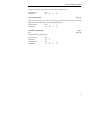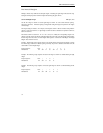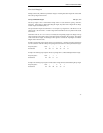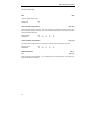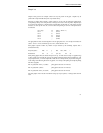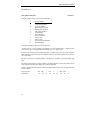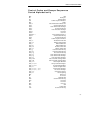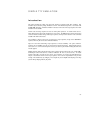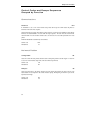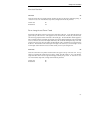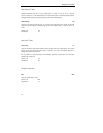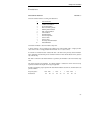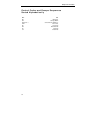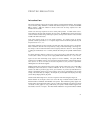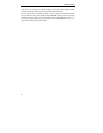85
SIMPLE TTY EMULATION
Introduction
This section describes the control codes and escape sequences comprising simple TTY emulation. This
emulation may be selected by setting “Emulation” to “TTY” in the interface setup menu, or via software with
the ESC ESC 6 sequence. While this emulation is selected, control codes and escape sequences from other
emulations are not available.
Control codes and escape sequences are used to control printer operation. An ASCII control code is a
single character in the range 00 hex through 1F hex, and 7F hex. The ESC (Escape) control code (1B hex)
is used to introduce character strings called escape sequences, which provide an extension of the commands
available with ASCII control codes.
TTY emulation is unique in that it does not support any escape sequences (except for the ESC ESC n
sequence, which may be used to select a different emulation).
Spaces are used when documenting escape sequences to increase readability. The spaces within the
sequences are for readability only; they are not part of the sequences themselves. Characters that appear in
italics (such as “n”) are not sent to the printer as is; they are used as a place holder indicating that some value
must be supplied.
Multiple character strings without intervening spaces typically represent control codes. For example, BS is
the Backspace control code (08 hex), not the two characters “B” and “S” (42 and 53 hex). An ASCII
Control Code Table is provided on page 109 for your convenience. If you have any doubt about how to
interpret a documented control code or escape sequence, refer to the hex representation in the provided
example. This should clarify any ambiguity. The examples may also be helpful when analyzing a hex dump
(see Hex Dump chapter) printed by the printer.



